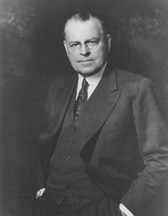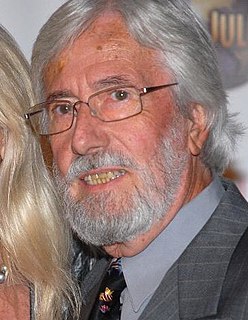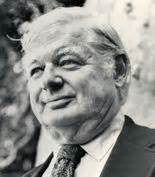A Quote by Carl Friedrich Gauss
There are problems to whose solution I would attach an infinitely greater importance than to those of mathematics, for example touching ethics, or our relation to God, or concerning our destiny and our future; but their solution lies wholly beyond us and completely outside the province of science.
Related Quotes
In the annals of science fiction, where dystopias rule the imaginative roost, Star Trek stood nearly alone in telling us that our future would be better than our past, that our common problems would be solved, that we, as a species, were fundamentally good, and that the universe would reward us for our goodness.
Mathematics alone make us feel the limits of our intelligence. For we can always suppose in the case of an experiment that it is inexplicable because we don't happen to have all the data. In mathematics we have all the data, brought together in the full light of demonstration, and yet we don't understand. We always come back to the contemplation of our human wretchedness. What force is in relation to our will, the impenetrable opacity of mathematics is in relation to our intelligence.
Is it too late to prevent us from self-destructing? No, for we have the capacity to design our own future, to take a lesson from living things around us and bring our values and actions in line with ecological necessity. But we must first realize that ecological and social and economic issues are all deeply intertwined. There can be no solution to one without a solution to the others.
Our future may lie beyond our vision, but it is not completely beyond our control. It is the shaping impulse of America that neither fate nor nature nor the irresistible tides of history, but the work of our own hands, matched to reason and principle, that will determine our destiny. There is pride in that, even arrogance, but there is also experience and truth. In any event, it is the only way we can live.
..all arguments concerning existence are founded on the relation of cause and effect; that our knowledge of that relation is derived entirely from experience; and all our experimental conclusions proceed upon the supposition that the future will be conformable to the past. .... Without the influence of custom, we should be entirely ignorant of every matter of fact beyond what is immediately present to the memory and senses.
Both our present science and our present technology are so tinctured with orthodox Christian arrogance toward nature that no solution for our ecologic crisis can be expected from them alone. Since the roots of our trouble are so largely religious, the remedy must also be essentially religious, whether we call it that or not. We must rethink and refeel our nature and destiny.
In our culture, many of us idealize love. We see it as some lofty cure-all for all of life's problems. Our movies and our stories and our history all celebrate it as life's ultimate goal, the final solution for all of our pain and struggle. And because we idealize love, we overestimate it. As a result, our relationships pay a price.
We cannot point to a single definitive solution of any one of the problems that confront us — political, economic, social or moral, that is, having to do with the conduct of life. We are still beginners, and for that reason may hope to improve. To deride the hope of progress is the ultimate fatuity, the last word in poverty of spirit and meanness of mind. There is no need to be dismayed by the fact that we cannot yet envisage a definitive solution of our problems, a resting-place beyond which we need not try to go.








































